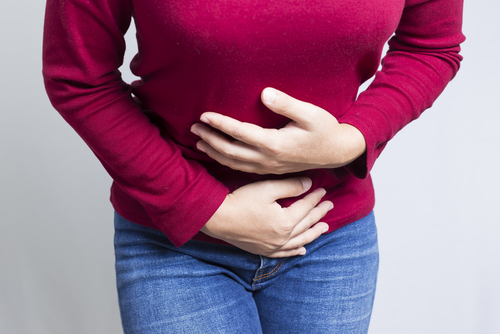For years I have had problems with my digestive system, always complaining about belly aches as a kid. Then, for years I self medicated with marijuana which only masked the problem. In my adult years I decided to step away from marijuana as I felt it was hindering my ability to be the best I could be on a daily basis.
Painfully Gassy…
Instantly, I was in pain all of the time once again, even when eating what I thought was a very basic, healthy, and appropriate diet. I had eliminated dairy, only ate chicken and fish on occasion and stuck with whole grains, vegetables, fruits and legumes.
For a while this also meant I was eating a lot of salads and smoothies when I was in a hurry. I couldn’t figure out why I was still constantly in pain after eating. I did see a doctor about it a couple of times but little was said or suggested, and alternative medicine/doctors wasn’t in the budget. This became a major reason as to why I became so interested in nutrition and how our bodies are working to digest foods.
Anyway, I have only recently been able to narrow it down to being gassy…yep, painfully gassy. Though I do pass gas many times throughout the day, be it belching or flatus, sometimes it is not at all ‘appropriate’ even when I rarely noticed much smell from my flatulence.
There are times also, when belching is difficult even when I am alone and trying to get it out. But, things are looking up and what I am about to share here has helped me.
There is a wide range of gas in a normal digestive tract at any given time. Somewhere between 7-14 Tbs or 100-200mL is what is said to be an average amount. There are many ways in which gas is made in the body or how it may enter the body, and many ways to dispose of it.
Gas may enter the body by
- Swallowing of air
- Produced by chemical processes in the intestines (mainly large intestine)
- By-product of fermentation of food by intestinal bacteria
Gas leaves the body by
- Belching
- Absorption into the blood stream
- Being consumed by certain intestinal bacteria
- Flatulence
Some bacteria in the large intestine produces gas, where others consume gas. Fragments of food that the digestive system is not able to absorb are broken down into smaller, simpler particles by gas producing bacteria, known as fermentation.
Gases which are released are hydrogen and carbon dioxide. Other bacteria in the large intestine, especially hydrogen, consume gas and in turn release small amounts of methane and sulphur containing gases which is responsible for the bad odour when passing gas.
Here are a few facts on how you may be able to help relieve yourself from pain associated with gas:
- Gas passes faster when standing rather than laying
- The transit of gas is normally very effective, but if some gas stays in the gut it may cause abdominal distention and symptoms of discomfort
- Gas is better tolerated if the gut is relaxed and if it is in the large intestine and not in the small intestine
- Frequency of flatulence varies in normality depending on diet but is around 20 times per day
- Some substances contained in beans block the intestinal enzyme that normally digests starch so that starch is not being absorbed in the small intestine, it then passes into the large intestine where it is fermented increasing gas production
- Things like fermentable dietary finer, dietary starch, complex carbohydrates (especially beans), and sugar sorbitol and fructose seem to cause gas in the system
- Gas can get trapped in your system, typically in the early stages of the small intestine. This can cause pain as well, try taking simethicone (Gas-X, Phazyme) it has an anti-foaming effect and prevents gas trapping and has little to no side effects
Treatment options differ as to whether the person has excessive gas in the gut or whether they have functional bowel syndrome with unexplained abdominal symptoms.
If you are having issues with excessive gas try a few or all of the following:
- Some practice in the reduction of swallowing air while eating or drinking
- Avoid using a straw
- Reducing intentional gas production which includes dietary modification. Avoid: beans, brussel sprouts, onions, celery, carrots, raisins, bananas, wheat germ, and fermentable fiber. Try instead: meat, fowl, fish, eggs, gluten free breads, rice cakes, rice, some vegetables; lettuce, tomato, some fruits; cherries, and grapes
- Re-introduce one thing at a time after a few weeks of limited gas causing foods, this will help you to identify which of the foods don’t agree with you, as everyone is different and not all gas causing foods disagree with all persons
- mild exercise can improve intentional gas clearance
Hope this helps!


